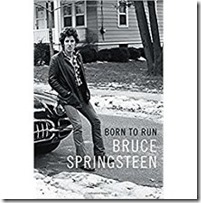There’s nothing like live theater for learning about ourselves and life’s complexities.
It lets us walk in another’s shoes and immerse ourselves in new ways of thinking and being! We listen, observe, and witness – and experience one of the few times when we significantly engage with others who speak directly to us that we do not talk or set our minds to work preparing responses to what they say before they even finish speaking. Theater slows life down and encourages us to study our reactions to it.
Quite simply, theater traffics in human understanding – and understanding one’s internal and external worlds is at the heart of leadership effectiveness.
The major challenges in leading – understanding and working with those who are different from us, seeing situations through another’s eyes or different lenses, forging shared interests and common goals, motivating, influencing while remaining open to new learning, understanding the roots of competing interests and conflicts, finding lasting solutions to complex problems – echo life’s larger challenges.
Different cultures, ethnicities, upbringings, experiences, and social traditions can separate us. But broadening our perspectives and minds takes us to rich, new heights and toward common ground despite our differences. Theater lays out these grand dilemmas in accessible form and invites us to watch, reflect, and learn from them. I’ve been reminded of this by a recent event.
 I saw “Hear Word! Naija Woman Talk True” – Ifeoma Fafunwa’s beautiful, honest, high-energy production about the complex intersections among gender, culture, abuse, and inequity in Nigeria; and had opportunity to engage with the playwright post-performance. What powerful learning for today’s fast-paced, global world!
I saw “Hear Word! Naija Woman Talk True” – Ifeoma Fafunwa’s beautiful, honest, high-energy production about the complex intersections among gender, culture, abuse, and inequity in Nigeria; and had opportunity to engage with the playwright post-performance. What powerful learning for today’s fast-paced, global world!
The show has been a phenomenon in Nigeria, playing to sold-out crowds in theaters, as well as standing-room-only, pop-up performances in markets, city squares, and other public places. It stars ten famous Nigerian stage and screen actresses, and is having its first full run in the U.S. at the American Repertory Theater in Cambridge, Massachusetts.
No question, the production is artistically magical, the cast and musicians superb, and the playwright a courageous and visionary leader in bringing cultural secrets to the light of day. This is an experience you won’t want to miss!
 Given the show’s subject matter and the added wallop of “Nollywood” stars as messengers – think about the role of Hollywood women in the U.S. #MeToo and #TimesUp movements – it is a major intervention for social justice and women’s empowerment in Nigeria and beyond.
Given the show’s subject matter and the added wallop of “Nollywood” stars as messengers – think about the role of Hollywood women in the U.S. #MeToo and #TimesUp movements – it is a major intervention for social justice and women’s empowerment in Nigeria and beyond.
The subject of women’s abuse and inequity is raw and rings brutally true in the production. The script is based on interviews with women in Nigeria across age, socio-economic class, place, and social circumstances and is a strategic series of song and dance-infused vignettes in the spirit of Anna Deavere Smith’s ethnographically-based work. The production (especially act 1) takes the audience, in the words of WGBH’s Jared Bowen, “right into the heart of abuse." There is pain for sure. But there is also great hope in bearing witness to the enduring spirit, fearlessness, defiance, and authenticity of women claiming voice, power, and personal agency: let change begin with me – a reminder to everyday leaders of their job to make the world a better place in whatever ways they can!
Leading in a global world requires global eyes and heart: the ability to understand and accept diverse cultures, see differences as the springboard to innovation, and work with grace and sensitivities when others hold values and beliefs far different from our own.
In today’s world, management educators and authors do leaders-in-training a disservice when they forget that or convey the illusion of simplicity or control with models and theories that portray work and life as linear, rational, neat, and tidy. Human nature is complicated, and social processes like leadership and management are steeped in ambiguity, confusion, competing values, and choice. Good theater acknowledges that and plays out human nature in its messy fullness. Let our understandings of leadership embrace the same.
Internal struggles, confusion, ambiguity, and doubts of the soul are all par for the course – and recognizing that enables us to summon the courage and persistence to stay the course. Real leadership looks more like the gritty and human process that it is – and less glamorous and heroic – when seen through the difficult choices and challenges of compelling characters, like the women in “Hear Word! Naija Woman Talk True”.
Life is not always fair nor power and resources equally distributed, and there is much work – globally and locally, personally and organizationally – to do. That’s why we need leaders fully prepared for the road ahead and able to embrace an increasingly diverse world without fear of loss!


